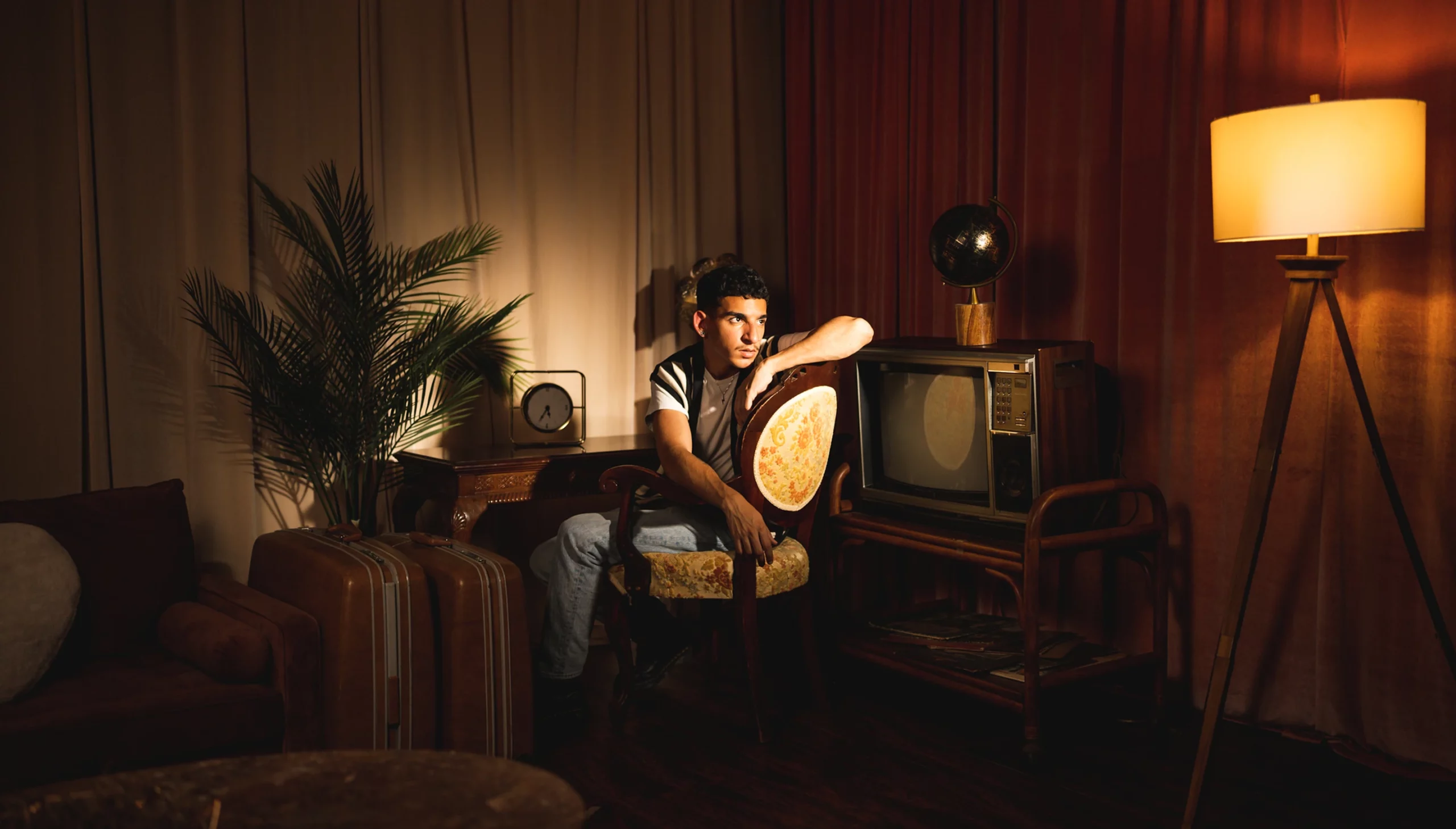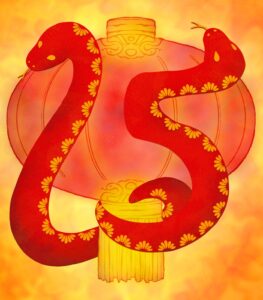Discovering new music has always been a pivotal coming-of-age experience for every generation, whether it was through listening to the radio, browsing your local record store or even watching your favorite TV show or film. Now people are primarily discovering their new favorite songs through music streaming platforms like Spotify, Apple Music or through social media, especially TikTok.
As music has become an integral part of the TikTok experience, users frequently add trending songs in their videos to gain visibility. Now, it got a little harder to listen to some of the popular songs on TikTok, as Universal Music Group (UMG) recently pulled their entire catalog from the app.
UMG’s contract with TikTok expired on Jan. 31, leading to a negotiation for a new music licensing deal. However, the two companies failed to come to an agreement, causing UMG to remove all music from their artists, including Taylor Swift, Olivia Rodrigo, SZA, Ariana Grande, Drake, Bad Bunny, Harry Styles, Justin Bieber and many more.
When users logged on to the app the following day, they quickly noticed that many of the videos they posted or saved were muted and were forced to become more innovative when adding music to their videos.
With music being a key part of TikTok’s origins–from its former name of Musical.ly–to its rise in popularity from creators like Charli D’Amelio and Addison Rae posting videos of themselves dancing to trending songs, why would one of the largest music companies in the world remove their entire catalog from one of the most popular music-focused apps?
In UMG’s open letter to TikTok, they cited three reasons as to why they chose not to renew their contract: fair compensation for its artists and songwriters, protection from AI for its artists and online safety for TikTok’s users.
UMG claims that TikTok’s proposed compensation for its artists and songwriters is much lower than that of similar major social platforms. The company also stated that the app only accounts for one percent of UMG’s total revenue despite TikTok’s large global reach and influence. However, TikTok claims that Universal is “putting their own greed above the interests of their artists and songwriters.” While no details have been released on the exact compensation deal that TikTok provided to UMG, UMG claims that the deal was “worth less than the previous deal, far less than fair market value, and not reflective of their exponential growth.”

While TikTok itself is not a music streaming platform, it has not only launched the careers of many modern musicians, but it has also caused a resurgence in songs and artists from previous generations. From Taylor Swift’s 2019 song “Cruel Summer” becoming her 10th No. 1 song on the Billboard Hot 100 after the song’s resurgence on the app during her Eras Tour to Fleetwood Mac’s 1997 hit “Silver Springs” captivating the hearts of a new generation due to the Amazon Prime series “Daisy Jones & the Six” based on the novel inspired by the band, TikTok’s power in influencing trends in the music industry is undeniable.
So, what will this change mean for smaller artists now that the app has removed songs from some of music’s biggest stars? Well it could give independent artists more recognition or it could allow TikTok users to look elsewhere to find their new favorite song?
Musicians and producers alike have expressed their concerns for what this could mean for the industry as a whole.
Vivienne Fowlkes, a 25-year-old producer from Jersey City, knew she wanted to pursue music production from a very young age.
“As a child, I’ve always said I wanted to be a producer or an artist ‘like Jay-Z.’ I was a natural music lover, and I wanted to do anything music related. Once I became a young adult in college, I had to decide how I could turn my passion into a career. I quit traditional university and just went fully at it, and here I am,” she said.
Her favorite genres to produce are electronic, hip-hop, and alternative.
While the production process across various genres can differ depending on the artist and their music, Fowlkes says, “one thing I know for sure, though, that is similar across the board is finding that spark in the project. You just KNOW when it’s going to be a hit song, or when the music gives you a special feeling. From there, you decide whether it’s worth sharing with friends or even the consumer for sales. Music is very lucid, freeing; it is not tangible. Every situation is so unique.”
Fowlkes has worked with many different artists and creatives.
“Although I’ve been blessed with opportunities working with stars, I mostly work with my talented peers. It’s a different type of feeling to tell your homies to pull up, let’s record, let’s jam sash, let’s test this out, or let’s just see how this sounds. I love experimenting; if you’ve worked with me, you know this. Most of the time, we’re experimenting or finishing up a project, sometimes even just making a quick song. Or hey, not finishing at all, I don’t like to force things.”
When it comes to promoting music on TikTok, Fowlkes says it’s become a common practice for some of her peers to use the app, but it’s not for everyone.
“Honestly, it’s 50/50 with my artist peers uploading music onto TikTok. It’s worked out really well for some. Others, it’s just not their thing, I guess. I would definitely say it is a common practice for some for marketing and promoting, as well as rolling out a single or project,” she told Slice of Culture.
As for UMG’s catalog removal from TikTok, Fowlkes doesn’t believe it will be beneficial in the long run.
“Honestly, I’m finding it hard to find any benefits to UMG removing their catalog on TikTok; I mean obviously no one will access this music for free anymore. It will force them to stream, which is definitely beneficial for the artists, and I’m all for that. However, I feel like the drawbacks alert me a bit more.
“The reality is that TikTok is one of the most popular apps to discover new and old music at the moment. It’s practically free promo, free marketing, which is why I see a lot of other labels taking advantage of it. It really depends on the label, and the artist and their team if they want to participate. In this case, I personally feel UMG is protecting their artists and there’s nothing ever wrong with that… plus it is a business game, despite the music. That’s another story though,” she said.
As many artists old and new continue to gain traction on TikTok, artists will have to become more creative and create content using their own songs.
“You will see all the top artists blow up in promo all from this app alone,” Fowlkes said. “The thing is it will force people to use their OWN music. Force listeners to tap into artists they have never heard of. Force creators to think outside of the box to get to the top of that trending rotation. Getting outside of the comfort zone is never a bad thing; it forces growth.”
With UMG’s decision, Fowlkes is curious to see the opportunities this will provide for artists on the app.
“This app alone provides growth and opportunity for artists, so why not see what they can do with it. Let’s see how it is when all local artists are the trending sounds, sounds fire to me. Meanwhile, the major artists will still get theirs outside the app, I suppose.”
With apps like Spotify providing daily personalized playlists for its users, people will still be able to discover music they like through their preferred streaming platform. However, TikTok’s ability to promote music that its users enjoy is unparalleled, as many users might not have found those songs or artists on their own, especially those who are just starting out or might not be as well known.
Artists like Olivia Rodrigo, Doja Cat, Megan Thee Stallion, Ice Spice, Pink Pantheress, Lizzy McAlpine, Jack Harlow and Tyla all became overnight sensations after their songs started trending on TikTok.
While many of these artists have established fanbases, UMG’s catalog removal will prevent many smaller artists signed to them to expand their audience.
With many trending TikTok songs no longer accessible on the app, many users are wondering what songs will become popular on the app with these limitations.
“Honestly, I’m not sure what type of music could appear from this. There are so many different artists, sounds, and places. People who haven’t had the guts to record themselves yet, and I say that with love. There are so many discoveries to be made from what comes to the surface,” Fowlkes said.
“The production quality could vary, but I’m always gonna have hope in my youth and everyone really to deliver their best work, and if they don’t, then that’s on them. Regardless, I’m ready to see everybody do great things. Let’s see what happens.”

Online Lover, a 27-year-old musician who is originally from Camden, but now lives in Los Angeles, has been releasing his own music for about three years.
“I have always had a strong love for music; I grew up watching and listening to a lot of early 2000’s r&b and have gained a pretty diverse ear since then. I would sing songs (in secret); I’d also watch an unhealthy amount of YouTube covers when I was a kid (still do),” he said.
While Online Lover has always been an avid music enthusiast, he didn’t start pursuing it until after he moved to Los Angeles.
“I was always self-conscious of people’s opinions; I didn’t start actively pursuing music until I moved out of my hometown and to college. Something about being 18, in a new city, miles away from home really helped,” he added.
“I took the leap to LA during Covid and had the same mentality. I experienced an emotional final year in New Jersey where I lost my younger brother and that shifted a lot of my perspectives on life as well. Since then, I’ve become motivated to go for everything I can in this lifetime and face the ‘what ifs’ head on.”
As an independent artist, Online Lover has released a few songs under the indie-pop and r&b genres and is currently working on his first EP, which will be his first cohesive project.
“My songs have a lot of emotional undertones with an often-upbeat tempo. I truly feel I have something for everyone in my discography.”
“The process for releasing can be tricky, but to generalize it, you can produce or lease a track, record at home or in studio, and release through a distributor. A common one I see a lot of artist use is a distributor called DistroKid. This is just scratching the surface; when you’re independent you’re also promoting your own music, creating your own album artwork, visuals, and also in charge with booking your own gigs, also you’re probably writing your own songs as well,” Online Lover told Slice of Culture.
“You of course can pay people for this or utilize your own connections, but sometimes that’s not an option. So, it’s definitely valuable to be well rounded in other creative outlets.”
He has edited his own videos and album covers and has designed his own website and merch.
Online Lover has said he uses TikTok to promote his music and has even had one of his songs gain traction on the app.
“TikTok is the platform that I have my largest following on. It honestly has helped me tremendously when it comes to promoting my music. TikTok has a unique algorithm that promotes new content like crazy. I started doing music in LA in 2020 and TikTok has helped me connect with listeners from all over the world. I have a specific single called ‘Number One Sad Boy’ that has become a fan favorite and grew a lot from being shared on this app,” he said.
“You never know what people might catch onto; I definitely recommend smaller artists to take advantage of the app. Even if their video gets 200 views, imagine having 200 people in a room. That’s still more than if they hadn’t posted anything to begin with.”
While Online Lover acknowledges the benefits the app has for promoting content from smaller independent artists, he doesn’t believe that UMG’s catalog removal will benefit TikTok.
“Honestly, I don’t see many benefits of tracks being pulled from TikTok. I have a few friends who work in the industry and obviously follow a lot of artists I’m a fan of; there is so much strategy that goes into promoting music through TikTok. Any artist with music under UMG is going to have a harder time having their audio go viral, especially when in today’s time, TikTok is THE app to go viral on.
“They’re going to have to rely on the loyalty of their current fans and curiosity of future ones who decide to check out their work. I think for independent artists, maybe we will get a little lighter on our tracks. There are hundreds of thousands of sounds being released everyday so you just gotta be consistent and hope your sound is reaching the right audience,” he said.
On the other hand, Online Lover thinks this change will launch the careers of more independent artists.
“I think that it will definitely give independent artists more recognition because our sound bites can be fully produced tracks as opposed to maybe some sped up version or a stripped-down acoustic video. I am excited to see how some of my favorite artists think outside of the box during this time. Honestly, they have the team for it, if they’re good at their job, this shouldn’t stump them too much. I’m sure some loophole will be created that becomes an industry standard for artists affected by the pull of UMG’s music,” he told Slice of Culture.
With the future of TikTok’s music catalog in question, Online Lover predicts that acoustic songs might become more popular on the app.
“I don’t know if it’ll be a resurgence per se, but I do think we’ll see a lot more acoustic versions of songs. I personally love a stripped-down version of my favorite track, also there’s something about an acoustic song that feels emotionally elevated. I’m sure we’ll see a lot of pre-recorded ‘live’ performances hitting our FYP’s real soon.”
With independent and mainstream artists alike seeing numerous drawbacks for UMG’s removal of its catalog on TikTok, it seems like one of these companies might revisit this topic in the future.
Videos of all kinds are now either muted or forced to include new music, from “get ready with me’s” to vlogs to pop culture reviews and especially videos that feature musical reviews and critiques.
While there is no set timeframe as to when their contract will be renegotiated, users are currently trying to make do with the limited music selection they have on the app. As the road to music discovery is now facing additional roadblocks, TikTok users everywhere might notice a significant change in songs that are pushed out into the algorithm.
As older established artists not under the UMG umbrella and newer independent artists are now able to capture TikTok users’ attention, it is unclear how this change will affect UMG’s artists. With many users being vocal about this change, it seems like it’s only a matter of time before TikTok or UMG changes their decision.











